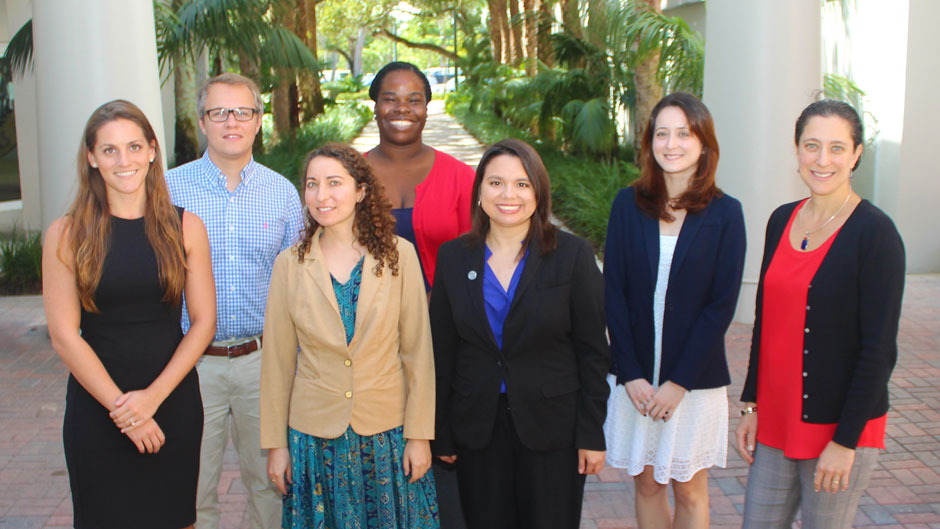Recently, students from Miami Law's Human Rights Clinic, joined with advocates working to address violence against women and submitted an “intervention” to the European Court of Human Rights in Toradze v. Georgia as part of the mission to advance social and economic justice globally.
In the case from the former Soviet republic, a police officer leveraged his official position to perpetrate domestic violence. The intervention filing, commonly known in the U.S. as an amicus brief—or a filing by a third-party intervener to the case to assist the court with expertise—focused precisely on the issue of accountability for gender-based violence by law enforcement.
“Officer-perpetrated GBV is so prevalent and yet so rarely addressed or even recognized as an issue. Governments must take immediate action to prevent impunity and ensure accountability for officers who use their authority, knowledge, and privilege to facilitate abuse in their relationships,” said Tamar Ezer, associate director of the clinic.
In the U.S., the clinic’s Community Oriented and United Responses to Address Gender Violence and Equalityin Policing Project works to enhance the law enforcement response to domestic violence and sexual assault, in partnership with community-based organizations, police departments, and national leaders. Casa de Esperanza, End Violence Against Women International, Futures Without Violence, and Women in Federal Law Enforcement were co-signers on the filing.
The students found the entire process, from researching the law to drafting the Intervention itself, both genuinely educational and, perhaps more importantly, emotionally engaging. “Knowing that we played a small part in the struggle for justice for survivors of domestic violence and sexual assault worldwide was beyond transformative,” said Damian Gonzalez, a second-year law student at the clinic.
An essential part of an adequate law enforcement response is accountability for GBV committed by law enforcement officers. Over the semester, two student teams in the Human Rights Clinic focused on the COURAGE Project: one group concentrated efforts on the law enforcement response to GBV in Miami-Dade, while the other has analyzed relevant international and regional human rights law, as well as best practices and challenges in various countries.
In their intervention, the COURAGE teams and the partners urged the European Court to consider, in the context provided by the case of Toradze v. Georgia, essential principles that have been developed by international, regional, and national authorities on policing and human rights, and to apply a heightened responsibility standard in cases of officer-perpetrated GBV. In making this novel argument, the intervention emphasized the need for a heightened standard to prevent government impunity and put in place systemic measures, including effective investigation procedures, legislation, and public policy, to address this issue proactively.
“The clinic is now mapping how countries in the Americas (including Brazil, Canada, and the U.S.) are addressing their human rights obligations in law enforcement response to GBV. Specifically, the project focuses on four areas of concern: accountability for officer-perpetrated GBV, trauma-informed interactions with victims/survivors, effective investigation of GBV reports, and attention to intersecting forms of discrimination,” said Ezer.

